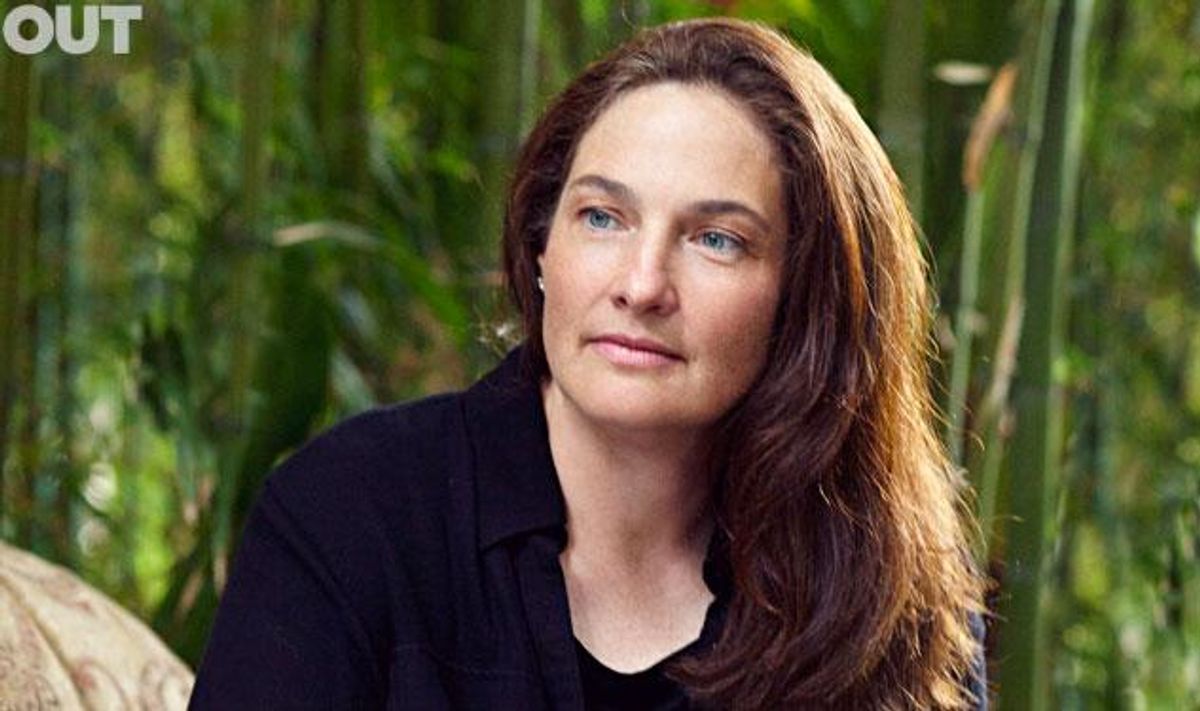Art & Books
The In-Betweener

A master of suburbia's dark secrets, A.M. Homes is actually quite the optimist.
September 06 2012 10:25 AM EST
February 05 2015 9:27 PM EST
By continuing to use our site, you agree to our Private Policy and Terms of Use.

Photography by Juco
"Most things aren't really all that happy," says A.M. Homes, her laughter bubbling up as an afterthought. From the 50-year-old writer -- whose fictional protagonists over the past two decades have included a Valium-popping boy who sodomizes a living Barbie doll; a married couple who try smoking crack to thwart domestic monotony; and a jailed pedophile-murderer -- that could be interpreted as an understatement.
In May We Be Forgiven, her first novel in six years, the macabre undercurrent of suburbia tugs as forcefully as ever, but there's a gentle wash of optimism, too. The tale is of Harry Silver, an out-of-touch history professor, and his attempt to cope with a series of traumas, both sexual and violent.
In the wake of his sister-in-law's murder at the hands of his brother, Harry finds himself with custody of his adolescent niece and nephew, both weathered warriors of upper-crust boarding schools. His is a mid-life crisis story, one that attempts to mend itself with alternative ideas of family, intimacy, and sexuality.
During the day, Harry scrolls online personals prowled by a menagerie of sex-starved soccer moms eagerly doling out "dough jobs" and naughty children impersonating their parents online. "I did tons of research," says Homes. "If somebody said to me, 'Do you really think this is happening?' I would say, 'Well, yeah, I do.' I know, because if you go on any of these sites, you see all these people -- they're all there."
Although her stories seem designed to provoke, Homes maintains that her work isn't all that disturbing, just frank about cultural taboos. "People are saying, 'Well, you're writing just to shock us.' And I say, 'Well, no. I'm writing to show you the world that you're living in, which, by the way, is shocking.' "
Homes, who has dated both men and women, also balks at those who try to define her. "I don't think I fit anybody's sense of gender," she says. "I don't think I fit anybody's sense of sexuality. I've had to live in that space in between places forever."
As for the male voice she uses in much of her writing, Homes, who was adopted at a young age, provides an acute and personal explanation. "I grew up in a house where I had an older brother who died six months before I was born," she says. "And I honestly think that's a big piece of it, although I don't ever usually say that. I suspect that somehow inhabiting that male persona, slightly 10 years older than I am, has really just been like a ghost in my life since I was born."
Homes tackled the subject of family and adoption in her last book, 2007's The Mistress's Daughter, in which she painstakingly details her disappointment in attempting to meet her birth parents at the age of 30. Honesty, she says, was her main goal. "You have to really commit to feeling how bad it felt," she says. But one would be wrong to assume that pain is the driving force behind her writing.
"Traditionally, literature doesn't end on a high note," she says. "But I've been thinking a lot about it: How do you write about difficult, furious stuff using comedy -- which in a way lets you talk about things that would otherwise be excruciating -- and do it in a way that leaves people feeling optimistic and slightly better about themselves and about the choices we make? It's a complicated thing."
May We Be Forgiven (Viking) comes out September 27.
Want more breaking equality news & trending entertainment stories?
Check out our NEW 24/7 streaming service: the Advocate Channel!
Download the Advocate Channel App for your mobile phone and your favorite streaming device!